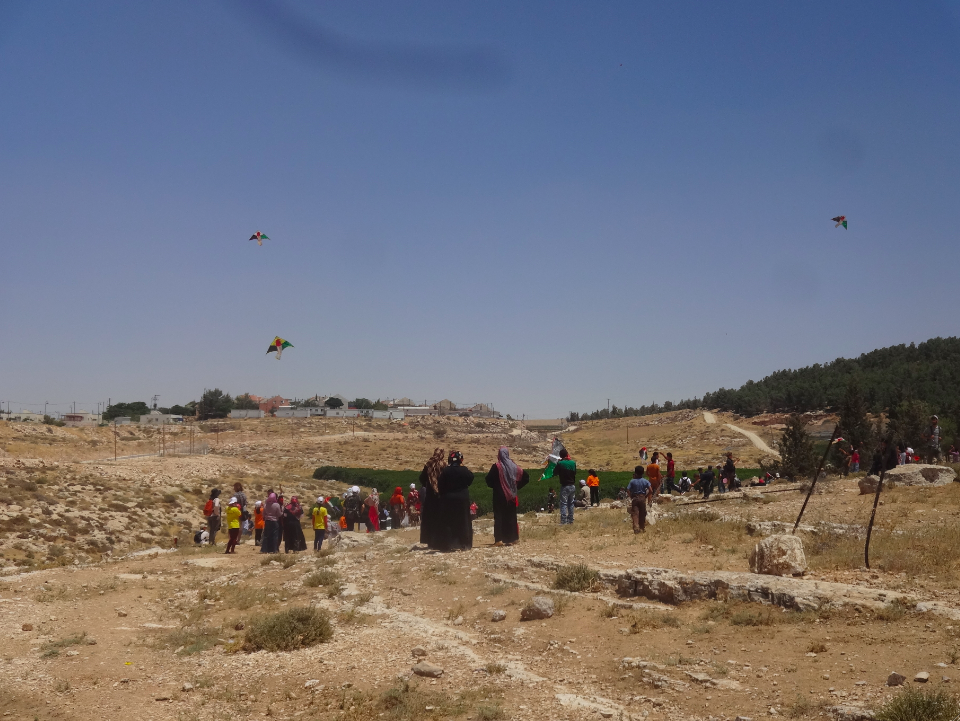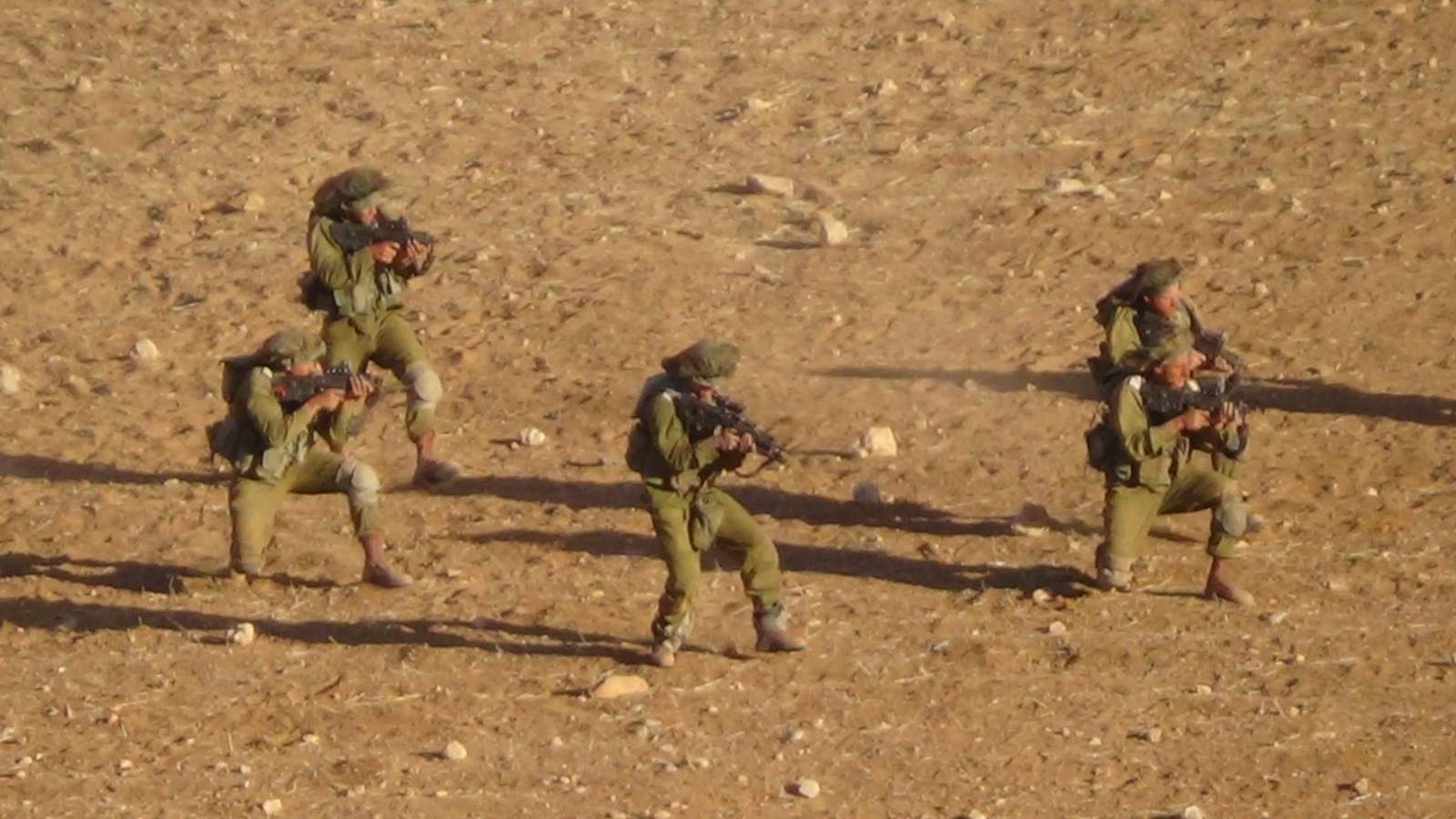Tag: South Hebron Hills
-
Seventh festival of South Hebron Hills popular resistance
21st June 2014 | International Solidarity Movement, Khalil Team | At Tuwani, Occupied Palestine Today in the village of At Tuwani, villages and popular committees in the South Hebron Hills and international activists, came together to celebrate the seventh festival of non-violent resistance in this area of the West Bank, and the end of a local children’s summer…
-
Israeli forces demolish structures in South Hebron Hills
20th June 2014 | Operation Dove | Khallet Forem, Occupied Palestine On June 18th, the Israeli army, along with border police officers and DCO (District Coordination Office) officers entered in the Palestinian village of Khallet Forem, in South Hebron Hills, and demolished seven houses, a bathroom, and a shelter. No demolition orders were delivered for these structures. According to Palestinian…
-
Israeli military trains close to the Palestinian villages of Jinba and Al Mirkez (Masafer Yatta)
13th June 2014 | Operation Dove | Jinba and Al Mirkez, Occupied Palestine From the 8th June until three hours ago, the Israeli military has been training in Palestinian-owned fields, close to the Palestinian villages of Jinba and Al Mirkez, in Masafer Yatta. Hundreds of soldiers have occupied the land in front of the nearby Israeli military base with tents…



